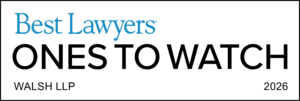Introduction
Over the last three years, everyone has used the word “unprecedented” an unprecedented number of times. A once-in-a-century pandemic will do that. But as we move beyond the emergency phase of the pandemic and into a more stable sort of normal, precedent has started to build around the policies and actions of the last few years, specifically COVID-related corporate policies regarding mandatory vaccination and mask wearing.
This shift from the urgent, medical perspective to a legal one can be confusing – and we predict that in the coming months there will be a growing amount of focus and legal scrutiny put on these policies. With that in mind, let’s take a look at recent decisions from the Courts in Alberta and British Columbia regarding mandatory masking and vaccination policies (“MVP”), constructive dismissal and what you need to know as a business leader.
Mandatory Masking Policies
While mask mandates seem to be behind us, the debate continues and has made its way into our courts. In the recent case of Benke v Loblaw Companies Limited, the Alberta Court of King’s Bench was asked to decide whether placing an employee on unpaid leave because of the employee’s refusal to wear a mask without a medical justification constituted constructive dismissal. Ultimately, the Court held that the employee’s inability to work was a consequence of a voluntary choice that he made, and therefore the employee was not constructively dismissed. In other words, the only thing standing in the way of the employee working was the employee’s own decision.
Specifically, the Court found that putting the employee on unpaid leave did not amount to constructive dismissal for two primary reasons:
- The Mask Policy was neither a substantial change nor breach in the employment contract
- While unpaid leave is a substantial change in the employment contract, the employee was choosing not to work so it was reasonable for the employer not to pay them.
While we surely haven’t seen the end of challenges to mask mandates and policies, the Court in Benke was clear in this case: in the absence of any proof that an employee is exempt from a mask policy on any of the acceptable grounds (ie, medical or religious), then there is no discrimination in the enforcement of an employer’s masking policy and an employee’s refusal would make repudiating the employment contract or unpaid leave justified.
Mandatory Vaccine Policies
Unlike masking mandates, many mandatory vaccine policies (“MVPs”) are still in effect – and have also started to have their day in court. We’ll no doubt continue to see additional cases, but last year’s Parmar v Tribe Management Inc, 2022 BCSC 1675. case provides an instructive example of what to expect moving forward. Ultimately, the British Columbia Supreme Court decided that the specific employee making the complaint was not constructively dismissed – but also found the MPVs must be decided on a case-by-case basis.
While the case-by-case ruling may seem vague, there are very clear factors the support the upholding of the validity of a MVP:
- At the time of enactment of the MVP, was the employer relying on recommendations, information or orders from the Provincial Government, Federal Government, Public Health Officer’s, the Centre for Disease Control or other reputable agencies which would lead the employer to concluding that MVP’s were required to maintain a safe workspace?
- Did the MVP apply to all employees, contractors and visitors who entered the workplace?
- Was a MVP necessary for the employer to comply with their statutory obligations to protect the health and safety of all employees?
- Did the policy contemplate exemptions on legitimate medical or religious grounds?
On the other side, there are also very clear factors that suggest the MVP is unreasonable:
- Provisions of the MVP allowed for discipline, up to and including discharge, of employees who decided to remain unvaccinated;
- The MVP applied to unvaccinated employees who worked exclusively from home where there was no reasonable expectation of them returning to the workplace; and
- The MVP applied to employees who worked exclusively outside.
Ongoing Considerations
Just when you thought we’d moved from the unprecedented to the beginning of precedent, everything could change again. The current Premier of Alberta, Danielle Smith, has made numerous comments about protecting the rights of the unvaccinated and suggested future legislative efforts to do so. Should any future legislation be passed to do such a thing, the law as it relates to everything we’ve covered here may be subject to change through further judicial consideration and challenges.
The Bottom Line
The last few years have been a challenge for everyone in many different ways, but just as things are beginning to feel “normal” again, the legal system is also beginning to grapple with the polices borne of the pandemic. Right now, one thing is clear: each case involving an employee claiming constructive dismissal due to the enactment of an MPV or mask policy must be analyzed on its specific facts – but the precedents will only grow and provide more clarity in the future.
As more employees begin to return to the office and pandemic policies evolve, issues related to the pandemic and measures taken to keep your workplace safe will surely continue arise – and that’s where we come in. Our team is experienced in handling all employments matters and together, we can help safeguard your business from any employment claims.
Feel free to get in touch with any questions you may have about COVID-19 policies, employment law or anything else you may need by calling our office at (403) 267-8400.









